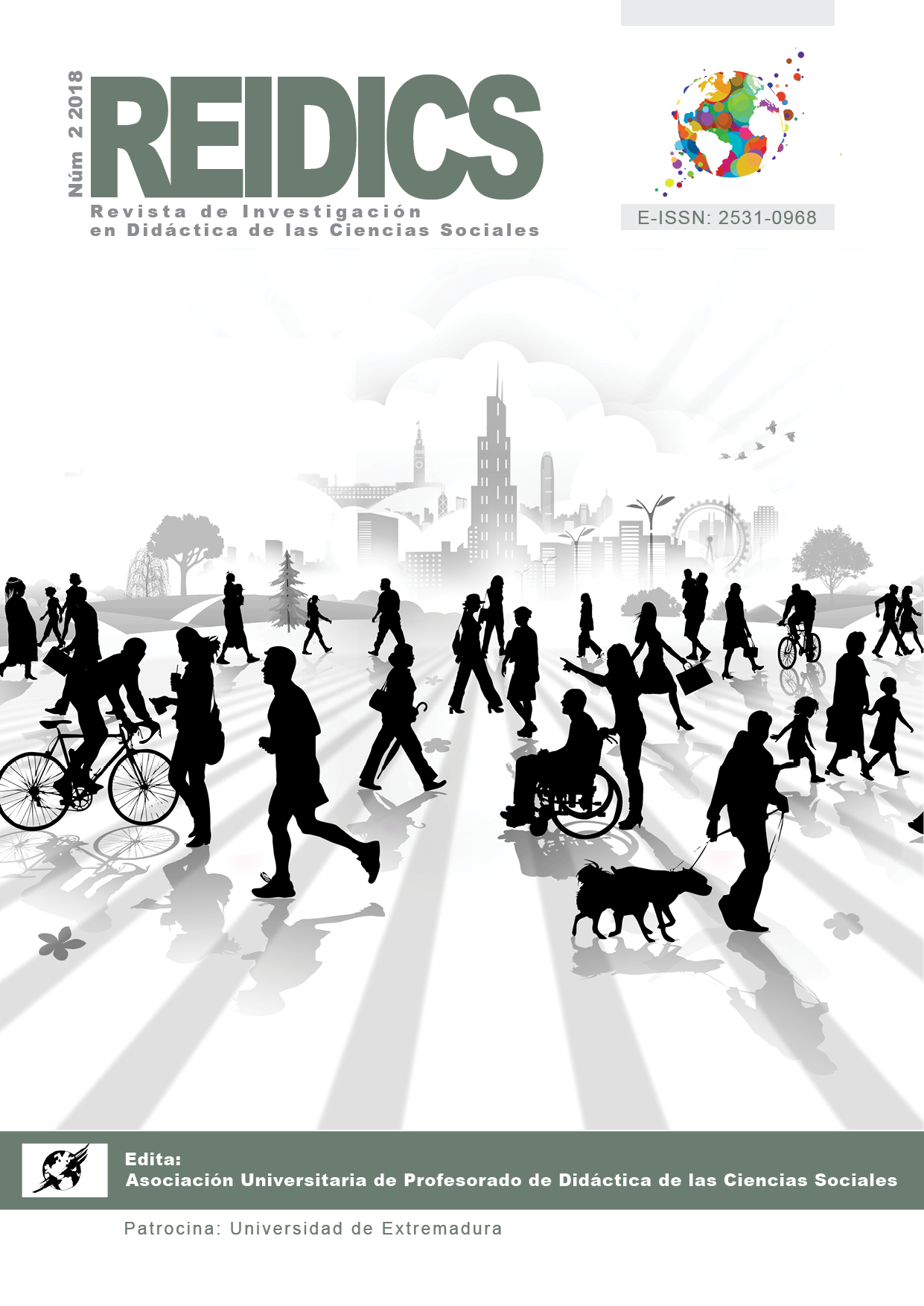We all are immigrants. Primary children’s representations on immigration
DOI:
https://doi.org/10.17398/2531-0968.02.20Keywords:
citizenship teaching; immigration; cultural diversity; citizenship; social representation; social problemsAbstract
This paper analyzes social representations of Primary children on immigration, based on their family history. The research was carried out with pupils attending 5th and 6th grade in Badia del Valles, near Barcelona, as they are a representative sample of immigrant society.
Migration represents a big issue in the teaching of Social sciences, as migratory flows around the world are a constant ever since. Nevertheless, the current policy of Europe or national governments towards these people is controversial, based mostly on rejection with economic or cultural (shameful) excuses. Refugees are treated as they were illegal immigrants or criminals, but migratory movements have always highlighted a situation of need or conflict.
So, our research wants to bring knowledge for building a Social Science education based on global citizenship.
The research was developed in two phases, on May, 2017 and on September, 2017. In the first phase, a questionnaire was passed to 50 students (27 girls and 23 children). Then, in the second phase 3 focus groups were carried out, with 10 boys and girls each, selected by stratified sampling according to criteria of gender and country of origin.
The greatest contribution of this paper is undoubtedly the rejection of violence and the hope for a better future of all these girls and boys. They gave us a lesson in participation, solidarity and democratic values, besides of their ability to analyze the situation.
Downloads
Published
Issue
Section
License
Aquellos autores/as que tengan publicaciones con esta revista, aceptan los términos siguientes:
- Los autores/as conservarán sus derechos de autoría y garantizarán a la revista el derecho de primera publicación de su obra, el cual estará simultáneamente sujeto a la Licencia de reconocimiento de Creative Commons 4.0 BY-NC-SA que permite a terceros compartir la obra siempre que se indique su autor y su primera publicación en esta revista.
- Los autores/as podrán adoptar otros acuerdos de licencia no exclusiva de distribución de la versión de la obra publicada (p. ej.: depositarla en un archivo telemático institucional o publicarla en un volumen monográfico) siempre que se indique la publicación inicial en esta revista.
- Se permite y recomienda a los autores/as difundir su obra a través de Internet (p. ej.: en archivos telemáticos institucionales o en su página web) antes y durante el proceso de envío, lo cual puede producir intercambios interesantes y aumentar las citas de la obra publicada. (Véase El efecto del acceso abierto).
- Los autores y autoras han respetado la política de autoría de esta revista.







